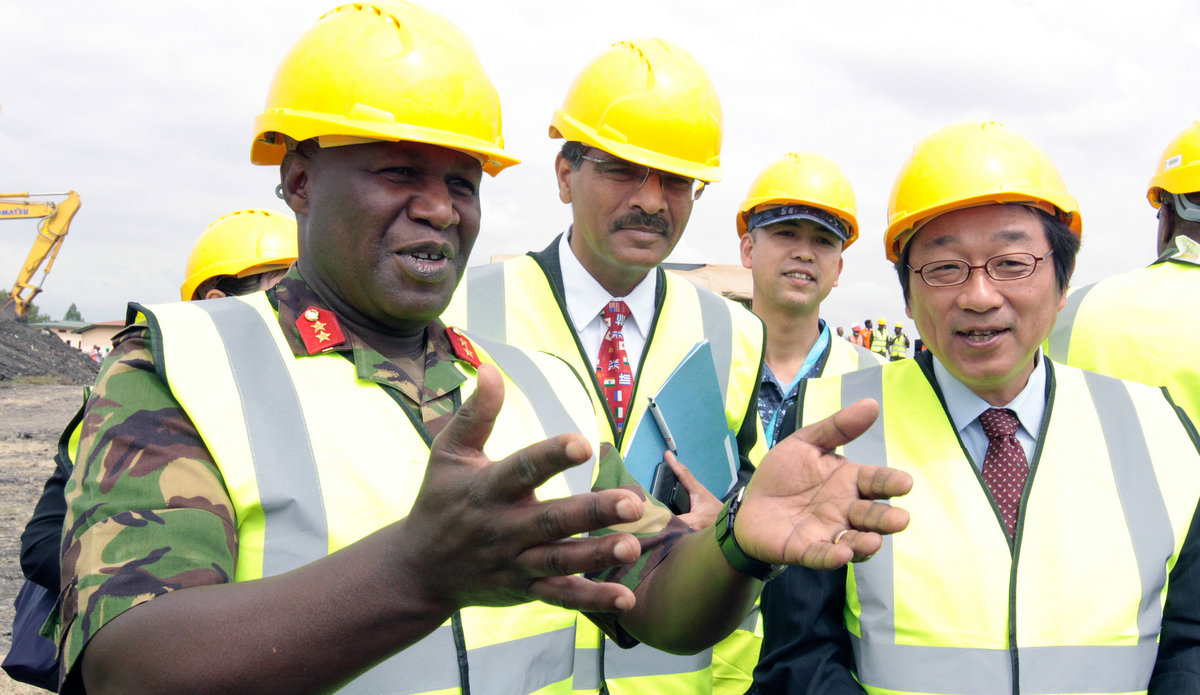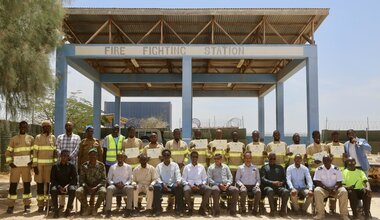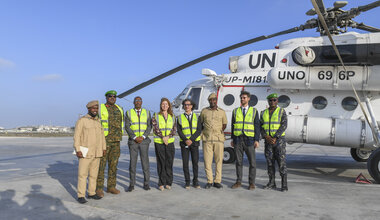Kenya selected as the first troop contributing country to benefit from engineering courses for peacekeeping operations
NAIROBI - United Nations Department of Field Support (UN DFS) has commenced training of 60 Kenyan military officers in an Engineering Plant Operation Course, intended to equip trainees with necessary skills and knowledge, on operation, maintenance and recovery of heavy engineering equipment, during peace support operations.
Kenya is the first troop contributing country to benefit from the second phase of training under the UN-led Triangular Partnership Project (TPP), whose aim is to boost the engineering capability of peacekeeping troops.
“Today’s peacekeeping missions are increasingly operating in non-permissive environments; in some of the poorest, conflict prone, remote and almost inaccessible areas; in places where there is little peace to keep and no agreement to support,” said Mr. Harinder Sood, the Triangular Partnership Project Manager, during the launch of the next phase of the training, in Nairobi on Monday .
Mr. Sood highlighted the challenges facing peacekeepers across the world, amidst the rising need for protection of civilians.
“In such a context, the capability that this project intends to enhance cannot be overemphasized. While peacekeeping remains fundamentally a political endeavor, very little can be achieved in peacekeeping without the missions being actually present, without secure and livable camps, without passable roads, without functional airstrips and helipads. When a mere 125-thousand peacekeepers operate in mission areas as large as 7-million square kilometers (simplistically, that is, one peacekeepers every 56 square kilometers), and in areas to which they are new and unaccustomed, essential infrastructure is a prerequisite for them to be able to operate. But often, this is a major challenge in the startup phase of a peacekeeping operation. And it is precisely at this time that the needs and expectations of the host government and the local people are at their highest,” Mr. Sood stated, as he explained the overstretched nature of peacekeeping missions.
The training is being undertaken with support from the Japanese Government, which has provided 18 trainers for the first course. “These trainers are Japan’s proud experts with abundant experience in engineering training, capable of handling heavy equipment such as excavators and heavy shovels,” Mr. Mikio Mori, the Japanese Acting Ambassador to Kenya described the quality of trainers.
Mr. Mori reaffirmed Japan’s commitment to the realization of peace in East Africa.
“East Africa is a gateway allowing the rest of the world to access untapped opportunities for prosperity. However, the region is riddled with major challenges including natural disasters, the threat of terrorism and instability in South Sudan and Somalia to name but a few. Kenya has courageously borne the heavy burden of maintaining peace in the region,” he said.
The Japanese government has provided $38m for infrastructure, training and operations.
Major General Robert Kibochi, the Assistant Chief of Kenya Defence Forces expressed confidence with the choice of trainees. “They know the challenges of providing support to civilians in terms of Main Supply Routes,” he noted, adding that most of them had previously been deployed in Somalia.
He highlighted the critical role of training in peace support operations, but was concerned about the lack of adequate engineering capability, despite the growth in number, of African peacekeeping operations.
The first course in the second phase of training will take eight weeks.
 UN
UN





